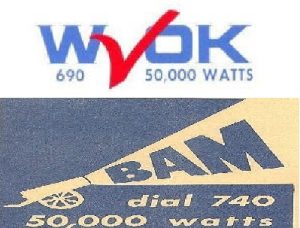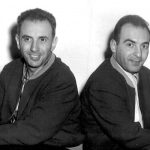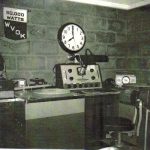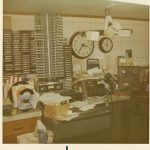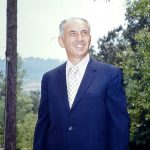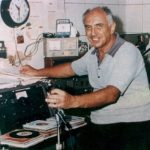WVOK: The Start Of An Era
3 shows a day, 2 stations.
Young Joe Rumore had developed a following, both in listeners and in sponsors. Joe had a unique situation with WVOK dealing with both his sponsors and his listeners, both situations intertwined into each other. In dealing with his sponsors, Joe would buy time from the station, and then sold the time directly to his sponsors. This plan worked perfectly. Making this plan work was the fact that Joe had three shows a day.
Joe would start the day at 9 A.M. with an hour long show for the housewives who listened. Joe would then have a show from 12 to 12:30 P.M. for the farmers at lunchtime. Not to leave out the after-school crowd, Joe had a program from 3 to 4:15 P.M. On top of this busy schedule, Joe also had a weekly inspirational music program on Sunday mornings. All of these shows were done live. This is unheard of in today’s radio market, both the workload and the live work.
Within the first five years at WVOK, Joe had up to 33 sponsors, which included Alabama Flour Mills, located in Decatur, Golden Eagle Syrup, located in Fayette, Sessions Peanut Oil, located in Enterprise, Bell Meade Crackers, and Philco products. In 1952, the second 50,000 watt radio station, WBAM in Montgomery, began carrying The Joe Rumore Show by tape, from 9 – 9:30 a.m. WBAM owned by the same people that owned WVOK, which gave Joe complete statewide and most of the Southeast coverage.
WBAM and Brother Duke
Joe did a daily show on WBAM also, taping the Montgomery show immediately following his afternoon show. Joe would then send it to the Montgomery studio via bus, where the news and weather would be somewhat accurate. On rare occasions when bad weather or tornadoes occured, Joe would tape the show before he went on in Birmingham and send it via the bus, with no time to spare. Only people who lived between Birmingham and Montgomery, where both stations could be heard at the same time, knew the Montgomery shows were taped.
Joe was possibly the only announcer in the state to have a studio audience. The studio audience was treated to products brought by the many sponsors of Joe Rumore. Only Joe and his sponsors knew how much of these products were given away. Joe also had his specific fill-in when he was on vacation; his brother Duke Rumore. Filling in for Joe got Duke a following of his own, and Duke was offered his own show on WSGN, and thus started a brother dominated radio market in Birmingham never seen before or since.
